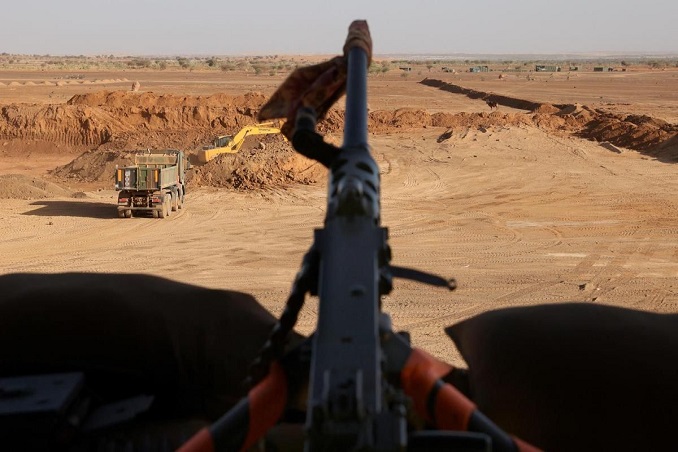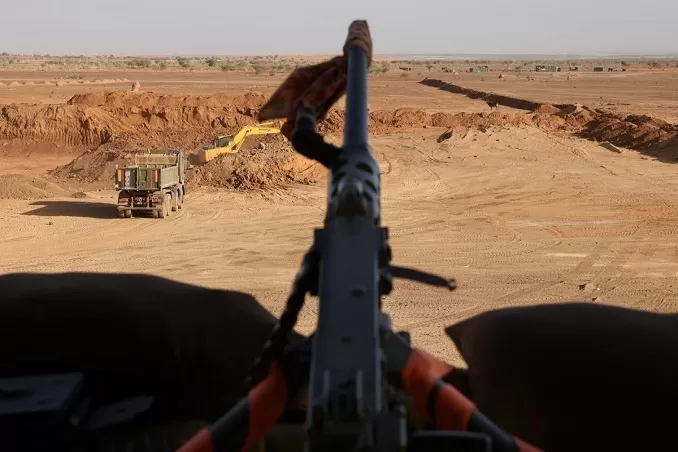

mali requests that denmark withdraw its special soldiers immediately (2)
![]()
![]()
Last week, Denmark announced the entry into Mali of 90 soldiers, mostly elite soldiers and military physicians, who will be based in Menaka and will take part in Takuba to defend civilians from jihadists in the so-called tri-border area (Mali, Burkina Faso, and Niger) (eastern Mali). The Takuba “task force,” a grouping of European special forces created to assist Malian soldiers in combat against jihadists, was launched in March 2020 at France’s request to share the burden with its European partners.
The request for the withdrawal of this Danish contingent comes in the midst of a tug of war between the junta and a part of the international community that wants to force it to return power to civilians in the near future, which is exceptional in the context of the security and political crisis that has shaken Mali for years. Relations with France, which has been militarily involved in Mali and the Sahel region since 2013, have deteriorated significantly. The junta has held onto the territory’s sovereignty since the Economic Community of West African States (ECOWAS) imposed sanctions on Mali on January 9, backed by France and other country partners.
It replied by closing its borders in response to ECOWAS’ border closures. It requires new clearances and procedures for aircraft entering Mali’s airspace. It also stated that it had requested that its defense agreements with France be reviewed. According to the Malian government’s communiqué, Danish forces were deployed without a bilateral agreement between Copenhagen and Bamako, as required under the protocol applicable to countries participating in Takuba.
As a result, “the Republic of Mali invites the Danish side to withdraw the aforementioned contingent from the territory as soon as possible.” Before any deployment in Mali, the government reminded its partners in the fight against jihadism that they must get the Malian authorities’ prior approval. Danish authorities were “working aggressively to bring greater clarity to the situation” and were “in communication with the Malian transitional government,” according to a statement released Monday evening by the Danish Foreign Ministry.
“The declaration of the interim government is now fraught with uncertainty. Because the Danish contribution is part of the French-led operation in Mali, the ministry stated, “we are also in close and constant communication with our partners, particularly France.” Along with France, the Netherlands, Estonia, Sweden, Belgium, the Czech Republic, Norway, Portugal, Italy, and Hungary are taking part in Takuba.
The request for the Danish contingent’s withdrawal exacerbates tensions between Mali and its allies, as France questions how to proceed with a junta that plans to stay in power for several years and that Bamako’s allies accuse of allowing mercenaries from the private Russian company Wagner to enter the country. The countries engaged in Takuba, as well as other Western countries, condemned Wagner’s use in late December.
South African Bank fined R700,000 after determining the institution misrepresented a credit product as an investment opportunity. Following its December…
EA Sports shows that Toronto Maple Leafs will stop their 58-year title wait by beating the Colorado Avalanche in seven…
Pope Francis, the first Latin American pope of the Roman Catholic Church, passed away in the morning of his 88th…
You want to pick a good film for weekend relaxation? Netflix South Africa provides customers with a wide range of…
The 2025 edition of AFCON will be hosted by Morocco which serves both the high-level competition and as a catalyst…
The Christian community marks Good Friday as its deepest holiday to remember when Jesus died at Calvary. The Christian community…
This website uses cookies.